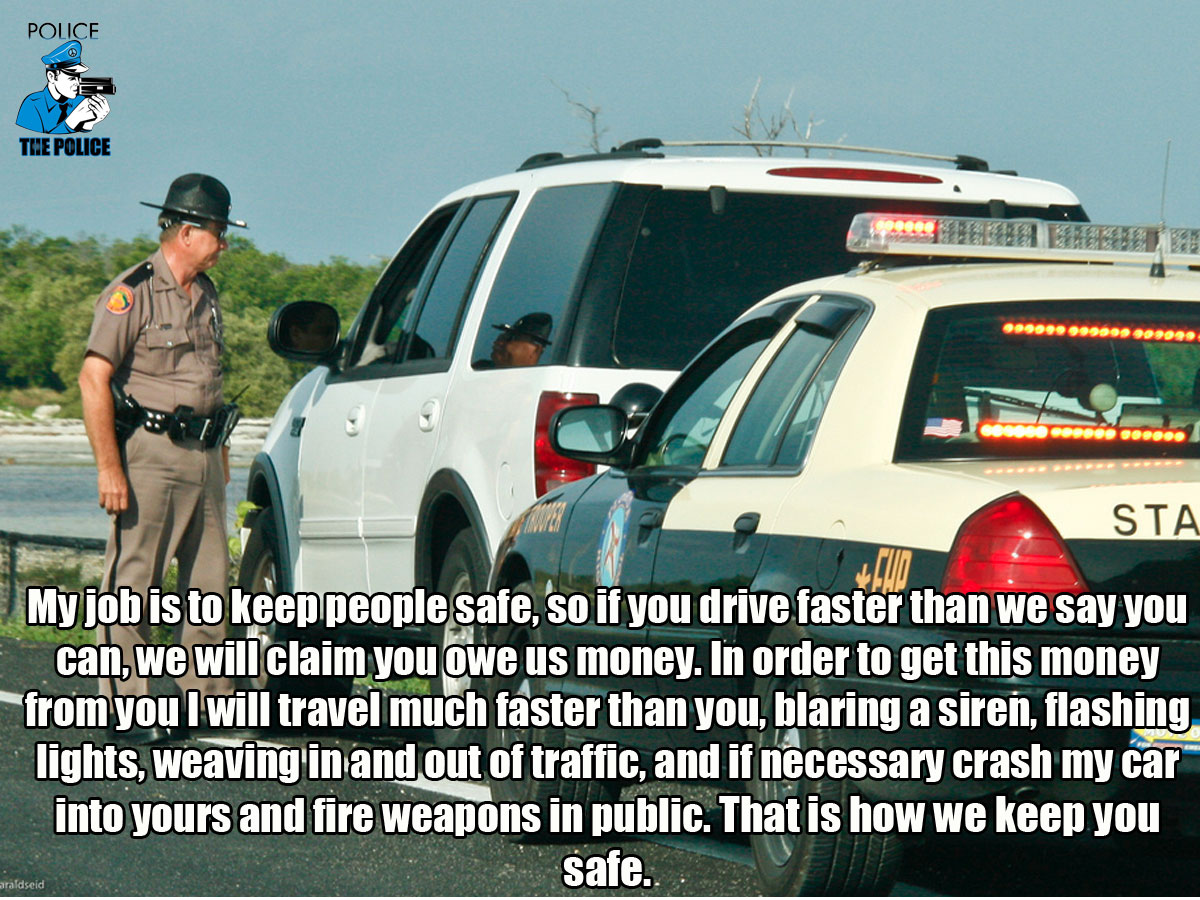Here’s the latest reader question, along with my reply!
Susan asks: My car’s ABS light is on; is it safe to drive this car?
My reply: It’s as safe to drive your car as it is for me to drive wth my ’76 Pontiac, which never had anti-lock brakes. Both cars still have fully operational brakes, however.
The fact that your ABS indicator light is on indicates that there is some problem with the ABS system, which is designed to prevent the brakes from locking up during hard/emergency braking and so, the tires (and the car) from skidding. The major benefit being you can still steer the car, even while fully applying the brakes.
ABS uses wheel speed sensors which detect impending lockup and an ABS pump that applies and releases braking force automatically.
If the anti-lock elements of the system aren’t working, the brakes will work like a system without ABS – assuming the basic brake system parts (e.g., the rotors/calipers/wheel cylinders/master cylinder/power booster/hydraulic lines, etc.) are all in basically good order.
This does mean, however, that the brakes can lock up during hard/emergency braking – and if you don’t release braking pressure (by easing off the brakes a little or by pumping them manually, with your foot) the car will skid. It will slide in the direction of the skid, no matter how you steer – so long as the wheels remain locked up.
So, yes, you can still drive the car – but a different driving technique is needed. You must remember to avoid tailgating and always leave yourself plenty of room to stop. I strongly recommend learning the point at which your car’s brakes will lock up during hard braking by experimenting in a safe place, such as a large – and empty – parking lot.
You did not mention how old you are, but most people under 40 today learned to drive in a car with ABS and have never had to deal with lock-up/skids. They have been taught to just hit the brakes – as hard as they can – in an emergency slow-down situation.
But this is unsafe in a car without ABS – because the brakes will lock up and the car will skid. You will lose control of it.
So, my advice is to either get the ABS parts of the system fixed, or learn how to safely drive a car without ABS!
. . .
Got a question about cars – or anything else? Click on the “ask Eric” link and send ’em in!
If you like what you’ve found here please consider supporting EPautos.
We depend on you to keep the wheels turning!
Our donate button is here.
If you prefer not to use PayPal, our mailing address is:
EPautos
721 Hummingbird Lane SE
Copper Hill, VA 24079
PS: Get an EPautos magnet (pictured below) in return for a $20 or more one-time donation or a $5 or more monthly recurring donation. (Please be sure to tell us you want a sticker – and also, provide an address, so we know where to mail the thing!)
My latest eBook is also available for your favorite price – free! Click here. 












Very few drivers understand the physics of driving their automobiles, let alone the ABS operations programming logic. As an occupant, we can see our vehicle is in motion, our cars cannot. Our cars depend on the movement of some component to translate into “motion of the vehicle”. When you are sliding on snow or ice, with your brakes locked (or better to say when the wheels are not rolling) the vehicle has no indication of its movement, which translates to “stationary”, as far as all control modules are concerned. This has the effect of rendering the vehicle safety features inactive (except perhaps an airbag impact sensor, but even most of those have modules that use vehicle speed parameters to deploy). So you become a rock just sliding along until another object stops your movement, because the car’s “safety” systems will not, primarily because your car has no input that translate into movement, as it can detect. The same, but opposite, is true should you put it up on blocks, with wheels in mid-air, put it in gear, and go. The car systems will translate that into vehicle motion, even though you are actually going anywhere.
Below a certain programmed speed, ABS modules will not function on the assumption that you are either coming to a stop, or in the case of locked brakes on ice, that you ARE stopped. The problem is primarily that drivers are now conditioned to drive the “system” and not the car in relation to road conditions and physics.
Without all that “safety” garbage, cars required skill, awareness,practice, and experience under all types of driving speeds and conditions. Most of this is no longer taught or learned by today’s “drivers”, yet probably accounts for most of today’s “accidents”, which I generally consider incidents, for the reasons expressed above. I won’t even begin to elaborate on how poor or improper maintenance will (and does) adversely affect the ability to control any vehicle, even under the best of road conditions.
I’ve found that the best thing you can do trying to stop on ice at lower speeds, is just throw the transmission in neutral if it is an automatic. Otherwise the brakes lock up at least some of the wheels just trying to overcome the engine idle before you can stop.
If I was single, I would never own anything but a manual //wink
The abs brakes lengthen the stopping distance, and in several cases I know of, have caused accidents that would not have happened if the tyres had locked up. I have had several near misses when the abs increased the stopping distance, almost causing an accident. And the abs brakes would be useless on snow or sludgy surfaces anyway.
Yeah, same here. Almost hit a deer in the road about a half mile down from our house a few years ago. I slam on the brakes, they make a bunch of thumping noise, and the car just keeps going as if nothing happened. Fortunately, Bambi got disgusted at the commotion and sauntered out of the way.
In that case, who the hell cares if I lock the tires and skid sideways on the gravel? I just want to not total my flimsy little car.
A tiny car with a young man and woman in it pulled right out in front of me doing 40 on a busy 4 lane street. I whipped into the other lane to avoid killing them, which the impact surely would have done. When I slammed on the brakes to avoid a line of stopped vehicles the brakes on my pickup just didn’t work. They were working sorta kinda as in barely letting any pressure to get to them via abs.
Totaled my pickup and another in front and another in front of him was hit. I was stunned to not have brakes. I later rebuilt that pickup and disconnected the ABS. It would lock all 4 regardless of the situation if required. I have a pickup now that’s supposed to have ABS……it doesn’t. Screw that shit. It’s dangerous, esp. on a steep slope with ice and/or snow.
Agreed. Personally, I think ABS does not even help. If you’re on dry pavement you don’t need it and it probably won’t turn on anyway, and if you’re on snow/ice/rain it won’t work anyway because there’s not enough surface traction to begin with. You’re better off braking manually, even if you end up locking up the wheels.
You get more braking time manually feathering the brake pedal than the ABS system gets by repeatedly slamming on the brake hard and then releasing, because the ABS pulse rate isn’t really fast enough, it actually wastes alot of braking/traction time, despite what they want you to believe.
I think it DOES work for race car drivers though — at high speeds on dry pavement it works. But for everything else (normal everyday driving) it doesn’t work. It’s one of those things that sounds good but in real life physics doesn’t really work well.
IMO, if everyone really cared about safety, ABS and ESP would be outlawed.
Modern ABS doesn’t seem to have the software bug that plagued earlier ABS cars where it wouldn’t let the wheels lock under 5mph. That caused a few scares for me and hitting a landscaping rock once at the cost of a fog lamp. If I had been driving an antique with 4 wheel manual drums it would have been just fine.
At speed though ABS has a benefit IMO. I drove too many years with 4 wheel manual drum brakes and while front disc/rear drum and modern proportioning solves much of the issues, ABS takes care of the rest. It’s just much easier to stop straight, especially as the weather gets bad.
Is 2006 not “modern” ???
I was doing maybe 25-30 when the ABS made be almost hit a deer.
The car DOES have good brakes. I had to make a really emergency stop on a paved highway when a crew cab dually turned left in front of me. The was no indication the ABS kicked in. I think it helps that the rear brakes are still just drums instead of discs. I can’t see the benefit of discs on the rear since the fronts do about 80% of the work anyway. I’ve replace the front brakes a couple times but the rear brakes are original at about 115K miles. I’ve got the shoes sitting in the shop but why change them when the old ones are still about 50%?
If you were going 20mph then the bug of earlier systems vs more modern doesn’t apply. The bug is that in low traction like snow the ABS stays on below 5mph and the car keeps going when skidding would stop the car.
There are many varieties of ABS systems. 4 channel, three channel, two channel?, and one channel (rear only). ABS software and the number of channels plays a huge role in its performance.
ABS kicks in when it senses wheel lock up. If there was always traction it won’t kick in.
Hi Brent,
Bikes with ABS have an Off switch – for precisely the reason you and others have mentioned. Cars ought to have one, too. But the saaaaaaaaaaaaaaaaaaaaaaaaaaaaafety nags won’t allow it. Notwithstanding that it isn’t safe.
“The bug is that in low traction like snow the ABS stays on below 5mph and the car keeps going when skidding would stop the car. ”
So you’re saying that skidding stops the car better than ABS, so why would it not work better at higher speeds too? lol
“ABS software and the number of channels plays a huge role in its performance. ”
Yeah, 4 channel is better than 1 channel because that means the ABS will only work on 1 wheel instead of all 4, so that means the LESS the ABS interferes the better, right? lol
ABS, “traction control”, and other bullsheet is just enabling generations of morons to NOT actually learn how to drive.
There! “I said what I said and I stand by it to the death.” // Devlin Warren (Patrick Wayne)
My advice is to save money and ditch the electronic ABS system. Learn to drive the car without. In 99 or more percent of braking cases, you don’t need ABS.